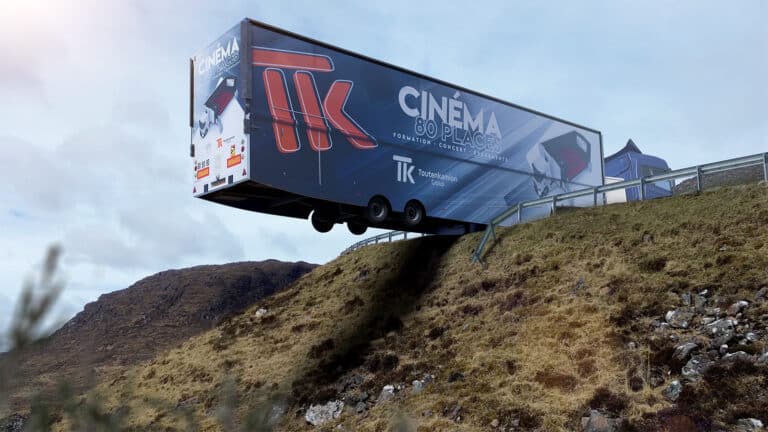Regional Screen Scotland has launched a crowdfunding campaign to replace a mobile cinema, which brings film to remote areas of the country.
They’ve enlisted the help of Collective agency and Alan Cumming to highlight the importance of taking Hollywood to the Highlands.
“The popularity of the Screen Machine mobile cinema service is beyond doubt,” said Simon Drysdale, Interim Chief Executive Officer of Regional Screen Scotland.
“Over the summer we’ve seen excellent numbers of customers come along to enjoy the big screen experience in their local communities. But what is very much in doubt is the future of the service. Today’s launch of a campaign to raise £100k from customers and supporters is intended to push potential major funders, including the Scottish Government, into action before this precious resource is lost.”
They’re hoping to raise enough cash for an 80-seat, air-conditioned film house, which can travel by lorry and ferry to bring film to areas not served by a cinema.
The current machine is on loan, replacing a vehicle that had broken down after many years of service. But, they say, the hired machine is too temporary, too costly and doesn’t fit on every ferry, meaning some islands go without.
“First dates, 4th or 14th or 40th birthday parties, the latest blockbuster or just something nice to do on a rainy weekend. Whether for excitement, escapism or both, going to the pictures is always a treat,” added Zack Gardner, Senior Copywriter at Collective.
“That’s why I loved Screen Machine from the moment I heard about it. And so did Collective. Any part we could play in making sure this experience can keep being offered to, and accessed by people who live in our country’s most beautiful and remote places was a complete no-brainer. ‘Mon the machine!’”
The 60-second film (along with 30’ and 10’ cutdowns) feature Alan Cumming explaining the backstory of Screen Machine, as it travels across Scotland.
It’s scored by acclaimed Scottish indie-folk band Tide Lines.
Screen Machine has been running for almost 30 years, serving 34k people across 44 communities, half of which are islands.









